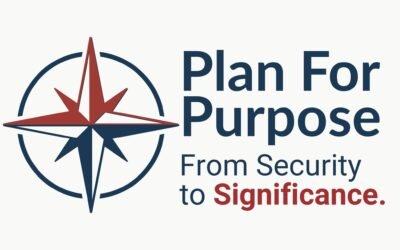Justice is often symbolized by Lady Justice, blindfolded, holding scales, and promising impartiality. Yet when we examine the lived reality of justice systems around the world, we find cracks in that symbolism. Too often, justice bends toward the privileged few, leaving many to wonder: is it really justice, or just us?
When Justice Fails to Be Just
Economic Inequity
Access to justice often correlates with financial resources. Those who can afford elite attorneys may negotiate lighter sentences, avoid incarceration, or secure settlements. In contrast, underfunded public defenders face overwhelming caseloads, leaving lower-income defendants with limited defense. This isn’t simply about law, it’s about survival, where wealth becomes a silent but decisive witness in every trial.
A system that promises fairness but functions differently based on income creates not just inequality of outcome, but inequality of opportunity.
Racial Disparities
Statistics repeatedly confirm racial bias in arrests, prosecutions, and sentencing. In the United States, Black men are incarcerated at nearly five times the rate of white men. Similar trends appear globally, where marginalized groups face disproportionate scrutiny and punishment.
Justice is compromised when skin color or ethnicity becomes a predictor of punishment. Such systemic bias corrodes trust and undermines the very foundation of equal protection under the law.
Gender Bias
Gendered experiences also expose inequities. Survivors of sexual violence often encounter skepticism, intrusive questioning, or outright disbelief in courtrooms. Men in family custody disputes sometimes find themselves disadvantaged by outdated assumptions about parenting roles.
When courts fail to adapt to modern understandings of gender and caregiving, they preserve structures that exclude or silence, rather than protect.
Historical Injustice
Justice systems have also been tools of oppression. Jim Crow laws in the U.S., apartheid in South Africa, and colonial legal frameworks across continents reveal that “justice” has often been designed to protect the privileged while subjugating others.
History teaches us that justice, when left unchallenged, easily serves power rather than fairness. It takes reform, vigilance, and courage to re-center justice around people, not privilege.
What Would Be Better?
Justice can, and must, be reimagined. Alternatives exist that point toward fairness rooted in dignity and accountability rather than punishment alone.
• Equity over Equality: Equality gives everyone the same tools; equity ensures people have the right tools for their circumstances. A wealthy defendant doesn’t need the same support as a low-income defendant, the principle of equity acknowledges this and balances the scales accordingly.
• Restorative Justice: By focusing on repairing harm instead of merely punishing offenders, restorative justice has been shown to reduce recidivism and improve community trust. It also validates victims by giving them a voice in the process.
• Accountability and Transparency: Mandatory reporting of disparities, bias training for judges and law enforcement, and independent oversight can curb hidden prejudice.
• Community-Centered Approaches: When communities participate in shaping legal responses, through mediation programs, neighborhood courts, and shared decision-making, justice becomes more accessible and responsive.
Justice must shift from being reactive and punitive to being proactive and restorative.
A Broader Parallel: Justice and Life Planning
Justice systems and financial systems share an uncomfortable similarity: both are often tilted toward those with resources. Just as access to legal defense is often determined by wealth, access to financial security is too often reserved for those with privilege or financial literacy.
At Plan for Purpose, we believe security and dignity should never be reserved for the few. Just as justice must strive to serve all people, financial planning should empower every individual and family, not just the affluent.
Through values-based financial planning, purpose-driven retirement design, and strategic life insurance solutions, we help clients create futures that are:
• Fair: Built around real needs, not just products.
• Purposeful: Aligned with values, legacies, and what matters most.
• Inclusive: Accessible regardless of starting point or income level.
The same pursuit that drives justice, fairness, accountability, and legacy, drives our philosophy of financial planning.
Conclusion
The question “Is it justice or just us?” forces us to confront uncomfortable truths. When outcomes are shaped by wealth, race, gender, or privilege, justice is not blind, it is biased. But both justice and financial planning can be reimagined. They can be made fair, restorative, and inclusive.
At Plan for Purpose, we believe the pursuit of justice and the pursuit of financial security share the same goal: making sure fairness is not a privilege for a few, but a promise for all.
Discover how strategic and intentional planning can reshape your purpose, legacy, and impact by booking a consultation with us at https://planforpurpose.com/ Also purchase a copy of our book “More Than Just A Payout: How Life Insurance Builds Security and Opportunity” @ https://a.co/d/eAEQe78
#JusticeOrJustUs #FairnessForAll #PlanForPurpose #FinancialJustice #LegacyPlanning #LifeInsuranceWithPurpose #EquityAndSecurity #PurposeDrivenPlanning
![Blog_Image[1]](https://planforpurpose.com/wp-content/uploads/2025/07/Blog_Image1.jpg)


0 Comments